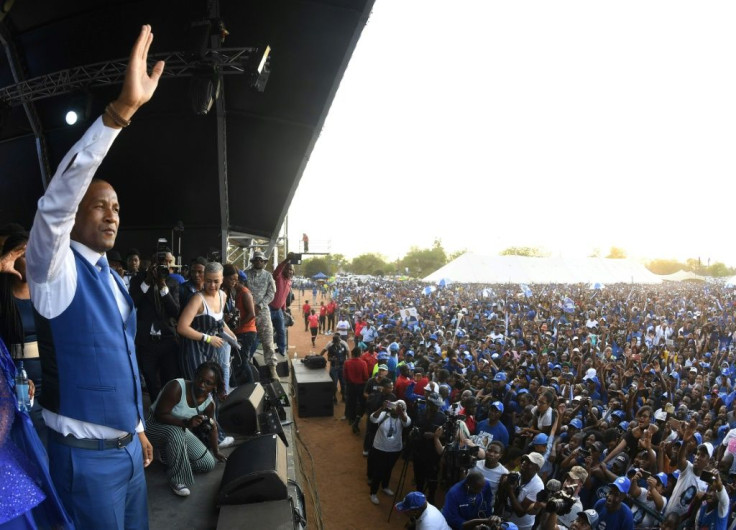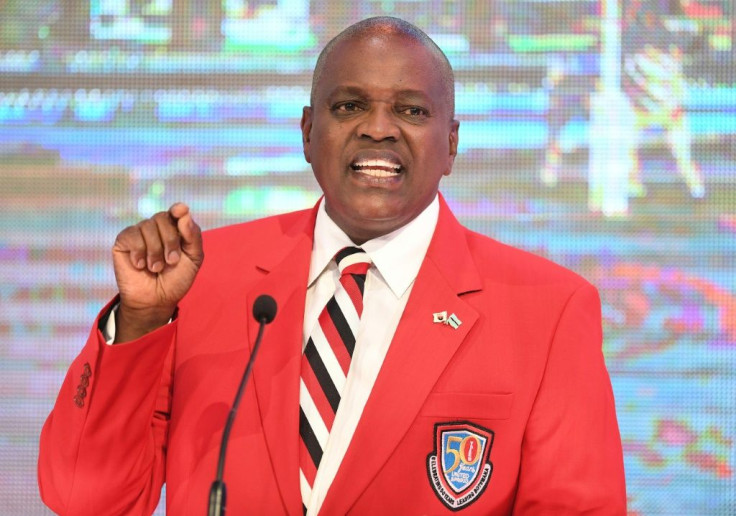Botswana Opposition Leader Confident After Ruling Party Divisions

Duma Boko, leader of the Umbrella for Democratic Change (UDC), told AFP he expected his coalition to secure at least 51% of the vote.
"I think we will win this election and we should," said Boko.
"We believe we will get a minimum of 33 constituencies," he added. The parliament in Botswana has 63 seats - 57 of which are directly elected.
The 49-year-old Harvard law graduate, was speaking to AFP in Botswana's capital Gaborone, sporting a white-and-blue tailored suit -- the colours of the coalition.
If his prediction is right, he could be the country's next president, as the party that wins the most parliamentary seats decides who gets that post.
Hailed as a beacon of democracy in Africa, Botswana is gearing up for a hotly contested poll that could see the ruling Botswana Democratic Party (BDP) lose seats in parliament.
BDP suffered a drop in popularity during the last election in 2014, when it secured 47% of votes.
It was the first time the party, which has governed Botswana interrupted since 1966, dropped below the 50% mark.
That year, Botswana's two main opposition parties -- which had united under the UDC banner -- won 30% of votes.
And since those elections, the ruling BDP been hit by divisions at the top.
Botswana's current president Mokgweetsi Masisi was appointed by Ian Khama -- the BDP's former leader and son of its founding father -- when his term ended last year.
But Khama walked out of the BDP in May this year, accusing Masisi of autocracy.

He went on to back a small splinter party of BDP dissenters, and is even urging voters in some constituencies to back the UDC.
'Fragmented' party
"(The BDP) is a pale shadow of what it once was," said Boko. The "fragmented" ruling party offered "no hope to the people of Botswana", he added.
The UDC has promised to create 100,000 new jobs within a year and to triple minimum wage to around 3,000 pula ($275).
"Decent Jobs, Decent Lives: it's possible", says the coalition's election slogan, which critics have described as populist.
An early evening UDC rally held at an open field in Gaborone attracted thousands of supporters dressed in blue T-shirts and caps, carrying blue-and-white umbrellas. They were entertained by top hip hop musicians and comedians.
In an hour-long speech Boko charmed the crowd with promises of jobs and pledges to reduce poverty, and the cheering supporters responded with hand gestures displaying the curved shape of an umbrella.
"The BDP all along has been saying it is going to create jobs. From the time when we gain independence they've been saying the same thing. It's just the same old song," said a 37-year-old unemployed UDC supporter Christine Motshidisi, wearing deep-blue lipsticks and blue artificial hair extensions.
"So, this time around we've got a leader who is a visionary and .... I believe that we are moving forward and we are doing something different from the past," she added.
Boko said he held no hard feelings against his rival Masisi.
"We appreciate and love him," said Boko. "But we will criticise him fiercely when we feel that he's veered off course."
The election coverage however had been unfair, as the state media have overwhelmingly focused on the ruling party, he argued.
"Anybody who says these elections can even be remotely fair doesn't know what fairness looks like," said Boko.
Just under a million voters are expected to cast their vote on October 23.
© Copyright AFP 2024. All rights reserved.





















